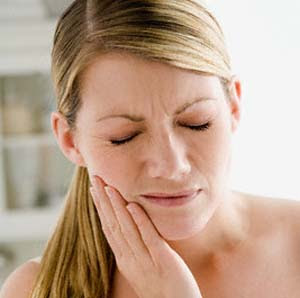10 Tips for Dealing with Sensitive Teeth
Introduction:
Having sensitive teeth can be a bothersome and painful experience. The sharp, sudden pain that arises from consuming hot or cold food and drinks can make simple daily activities uncomfortable. Quality is the hallmark of the best dental lab in India, in case you need dental products, there are several measures are their you can take to alleviate tooth sensitivity and improve your dental health. In this article, we present ten effective tips for dealing with sensitive teeth.
1. Use a Desensitizing Toothpaste :
Invest in desensitizing toothpaste that is specifically formulated to tackle tooth sensitivity. These toothpaste products contain ingredients such as potassium nitrate or strontium chloride, which help to block the transmission of pain signals from the nerves in your teeth.
2. Maintain
Good Oral Hygiene:
Maintaining good oral hygiene is essential for the health of
your teeth and gums. Proper oral hygiene is crucial for
combating sensitive teeth. Brush your teeth gently using a soft-bristled
toothbrush and fluoride toothpaste at least twice a day. Remember to use
gentle, circular motions to avoid further irritation to your teeth and gums. Daily flossing helps remove plaque and food particles from
between your teeth and along the gum line, where your toothbrush cannot reach.
3. Choose a
Soft-Bristled Toothbrush:
Over time, toothbrush bristles become frayed and less
effective at cleaning your teeth. Replace your toothbrush or brush head every
three to four months or sooner if the bristles are worn out. Using a toothbrush with soft bristles is essential for
protecting your tooth enamel and preventing gum recession. Hard-bristled
brushes can wear down the enamel and expose the sensitive dentin layer, leading
to increased tooth sensitivity.
4. Avoid
Acidic Foods and Drinks:
Acidic foods and drinks, such as citrus fruits, tomatoes,
carbonated beverages, and vinegar, can erode the enamel and worsen tooth
sensitivity. Limit your intake of these acidic substances, or rinse your mouth
with water afterward to neutralize the acid. Smoking and
using tobacco products increase the risk of gum disease, oral cancer, and other
oral health problems. Additionally, excessive alcohol consumption can also contribute to gum disease and tooth decay. Minimize or
eliminate tobacco use and drink alcohol in moderation.
5. Be
Mindful of Teeth Grinding:
Teeth grinding, also known as bruxism, can contribute to
tooth sensitivity by wearing down the enamel. If you grind your teeth, consider
wearing a mouth guard at night to protect your teeth from the harmful effects
of grinding.
6. Limit
Consumption of Teeth-Staining Substances:
Substances like tobacco, coffee, tea, and red wine can stain
your teeth and weaken the enamel, leading to increased sensitivity. Reducing
your consumption of these substances or using a straw to minimize contact with
your teeth can help alleviate sensitivity.
7. Avoid
Over brushing:
While maintaining good oral hygiene is important, over brushing
can actually exacerbate tooth sensitivity. Brushing too vigorously or using a
hard-bristled brush can cause enamel erosion and gum recession. Practice gentle
brushing techniques and consult your dentist for advice on the proper brushing
technique for sensitive teeth.
8. Consider
a Fluoride Rinse or Gel:
Fluoride rinses or
gels can help strengthen tooth enamel and reduce sensitivity. Incorporate a
fluoride rinse into your oral care routine, or consult your dentist for a
prescription-strength gel to protect and strengthen your teeth.
9 Seek Professional Dental Care:
Regular dental check-ups are crucial for identifying and
addressing the underlying causes of tooth sensitivity. Your dentist can assess
your dental health, provide professional cleaning, and recommend appropriate
treatments or products to manage sensitivity effectively. Aim to visit your dentist every six months, or as recommended
by your oral healthcare professional.
10. Watch
Your Whitening Products:
While teeth whitening products can enhance your smile, they
can also contribute to tooth sensitivity. If you experience sensitivity after
using a whitening product, discontinue its use and consult your dentist for
alternative options or professional teeth whitening procedures that are more
suitable for sensitive teeth.
Conclusion:
Dealing with sensitive
teeth requires a combination of proper oral care and making conscious choices
about your diet and lifestyle. By implementing these ten tips, you can
alleviate tooth sensitivity and enhance your overall dental health. Remember to
consult your dentist for personalized advice and to address any underlying
dental issues that may be causing or worsening your tooth sensitivity. With the
right care and attention, you can enjoy a pain-free smile and indulge in your
favorite foods and drinks without discomfort.




Comments
Post a Comment